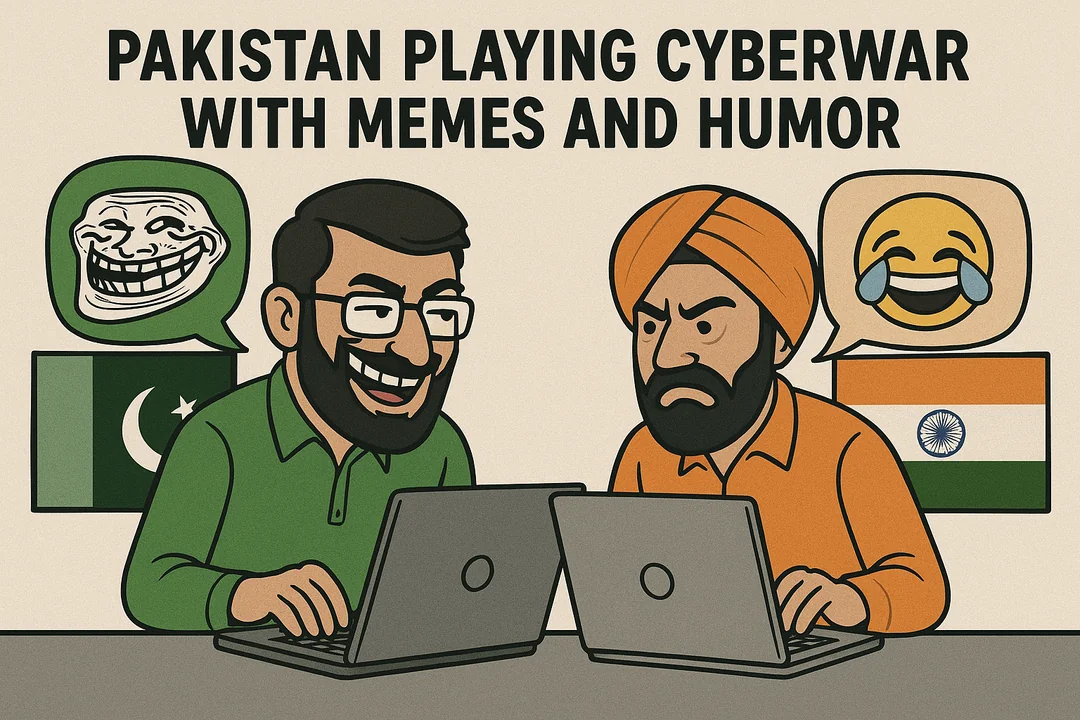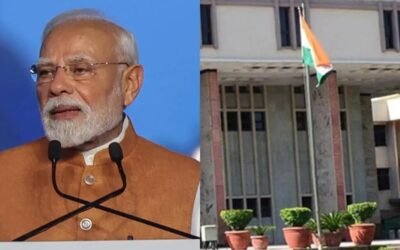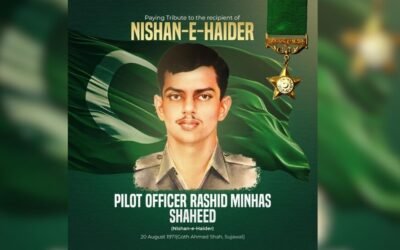Humor has always been a vital part of Pakistani geopolitical commentary, spanning from newspaper editorials to humorous caricatures of key state figures, live-action cartoons, and comedy shows on news channels that offer a light-hearted and refreshing perspective on otherwise serious situations. If anything, Pakistanis have learned to find humor even in the darkest times, as shown once again in the recent India-Pakistan conflict with a flood of memes from both sides.
Narrative Building Through Memes
In the wake of the Pahalgam attack, Pakistan was once again blamed for inciting terrorism on foreign soil, as has been the trend by the Indian government. Press conferences and official statements were made by the Pakistani government denying the false claims. Despite efforts to de-escalate the tensions, India responded by blocking the river flow to Pakistan, violating the Indus Water Treaty. This was a serious situation; however, the people of Pakistan responded with humor once again. The youth took to Instagram, Facebook, and X to create memes in the face of impending doom.
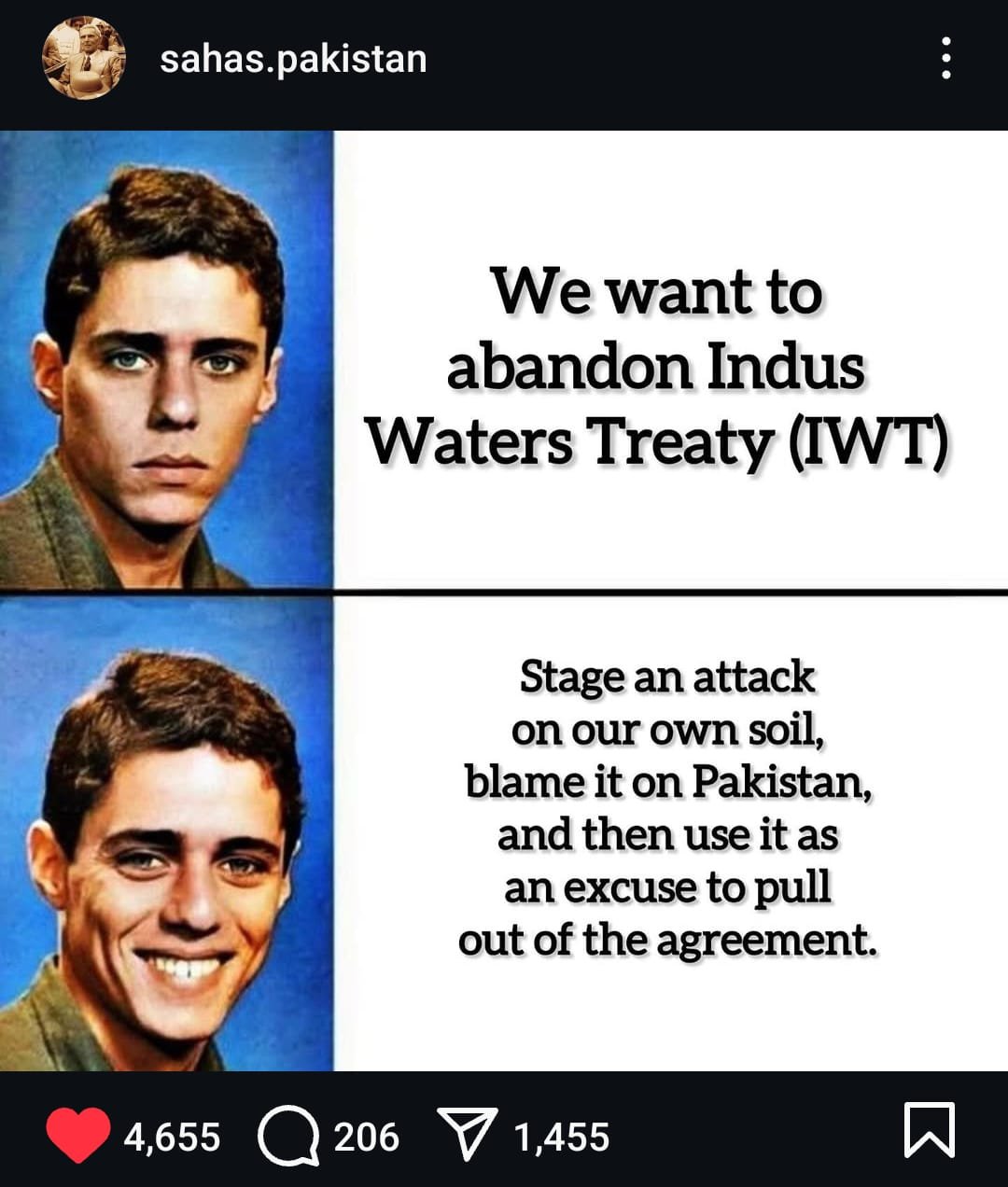
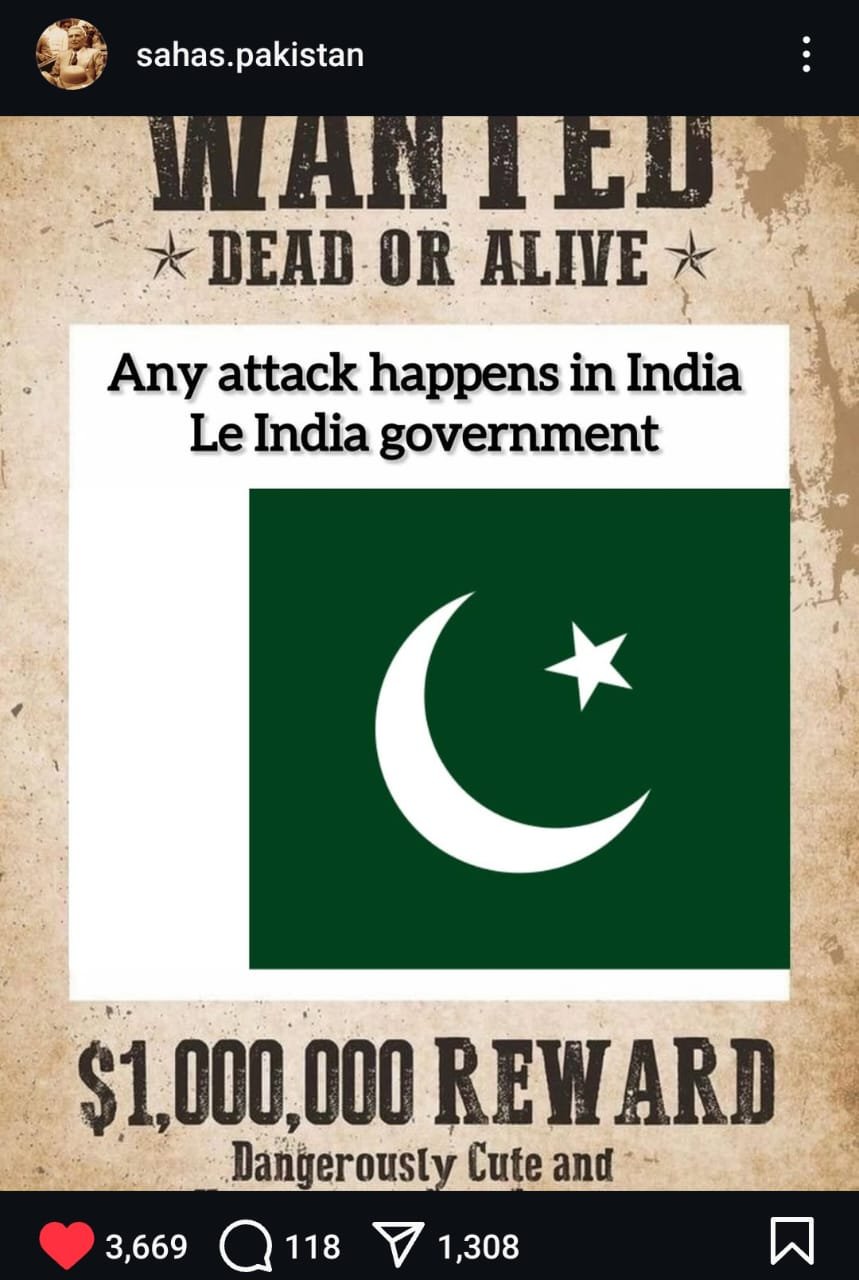 Source: Instagram (@sahas.pakistan)
Source: Instagram (@sahas.pakistan)
What the government tried to explain through diplomatic language and extensive media conferences was presented in such a simple and understandable way on a platform accessible not only to Pakistan and India but to the entire world. Pakistani meme pages responded with memes that not only aimed to discredit the Indian narrative but also showed self-reflection, which made them even more credible. Here was a people who were self-aware and not blindly accepting the information fed to them, while also encouraging Indian citizens to do the same. The memes were not just one-sided, and India also responded with their own, but the difference was that their memes focused less on creativity or genuine inquiry into the attack and more on insulting and using derogatory language against Pakistan. This difference was noticed by all neutral parties, and one reason the Pakistani narrative prevailed despite ongoing diplomatic challenges. The Pakistani meme community, mostly made up of youth, displayed maturity and a solid understanding of the geo-political situation compared to Indian youth, who were blindly supporting their government and extremism calling for violence against Pakistan.
Diplomacy Through Memes
While memes were used to build narratives and shape opinions, they also served an unexpected purpose: diplomacy. Through humor, government officials on both sides managed to silence some of the loudest voices promoting war. Memes became a tool to de-escalate tensions rooted in decades of conflict and shared history of aggression. Pakistani meme pages, instead of creating hyper-nationalistic memes that humiliated India, chose to focus on mutual respect and irony, encouraging sensible voices in India to question their government’s policies. Memes celebrating shared cultural experiences and common anxieties of the subcontinent helped bridge divides and reduce extremist voices calling for all-out war.
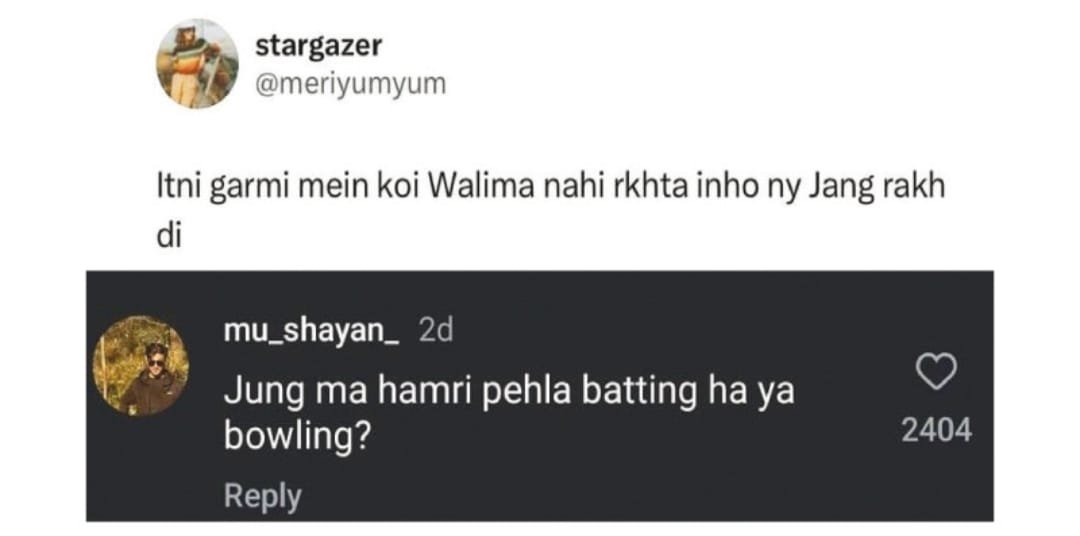
Source: Instagram (@meriyumyum)
Whether it is the hot May weather or the shared love for cricket, most of the memes created during and after the conflict focused on mutual concerns that were not meant to mock either side. The Pakistani meme community has also, at times, used self-deprecating humor to ease tensions, such as memes about electricity and gas load shedding, urging Indians to end the war before sunset because there is no light afterward. This lighthearted humor in an otherwise serious situation shows how humor can help bring out the best in humanity during the worst times.
Morale Building Through Memes
Another interesting development during this conflict was the role of memes in boosting morale and confidence against an adversary ten times larger in economic and military power. Humor helped downplay a grim situation, which in turn eased fears among the masses and boosted the confidence of those fighting on the front lines. Whether it was the laid-back joint press conferences of the three branches by Inter Services Public Relations (ISPR) or the humorous defense analysis by digital creators like Abbas Bukhari (Instagram @abbassbukharii), satire became a key tool in alleviating the psychological stress of the conflict. Who would have thought that the soul-stirring national songs of Noor Jehan would someday be replaced with funny images and silly one-liners to lift the spirits of the nation and the troops? Even serious figures like the Pakistan Naval PR head couldn’t resist mentioning the memes made about him during the joint press conference aimed at clearing doubts and misinformation regarding the conflict.
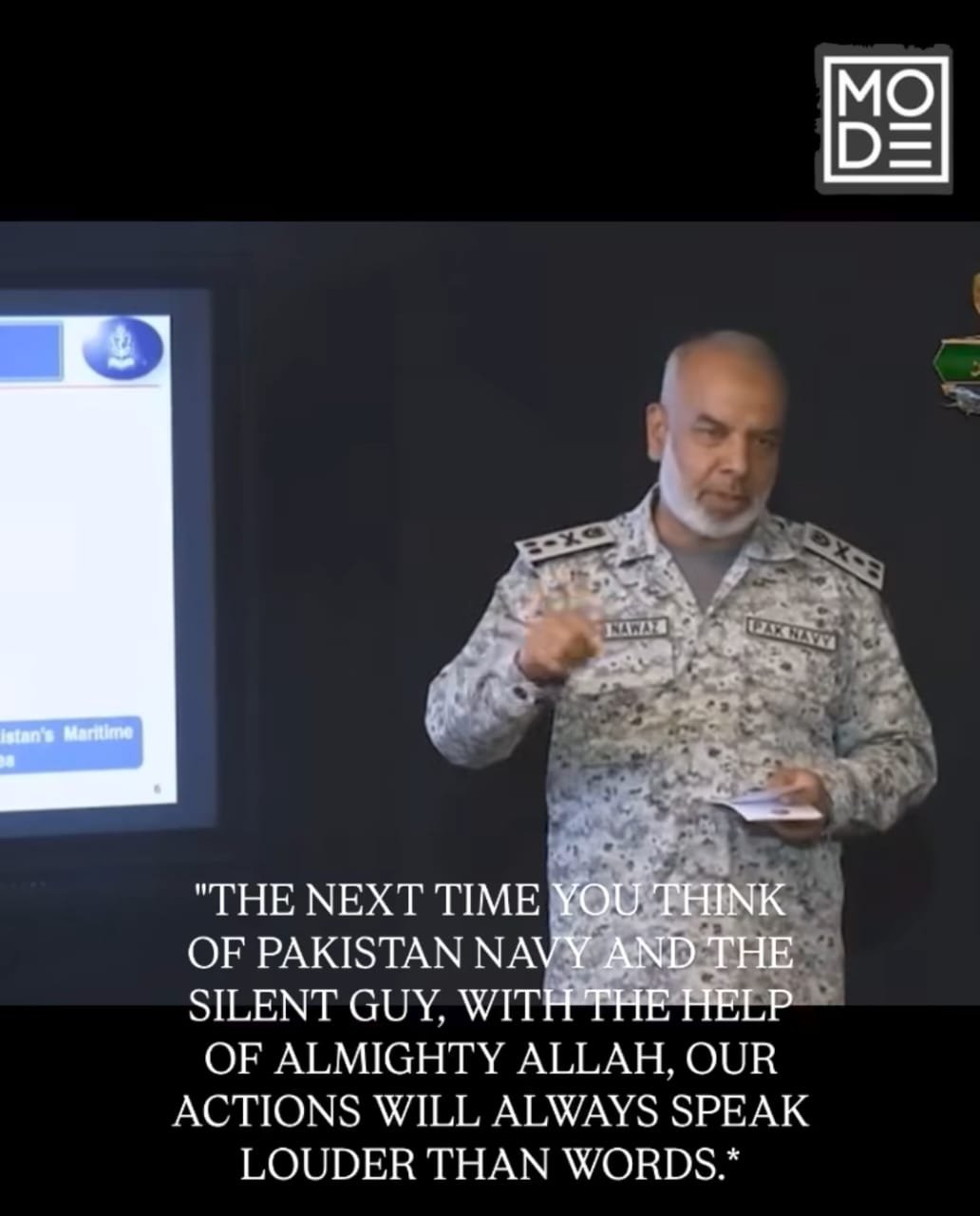
Source: Instagram (@m.o.d.e_magazine)
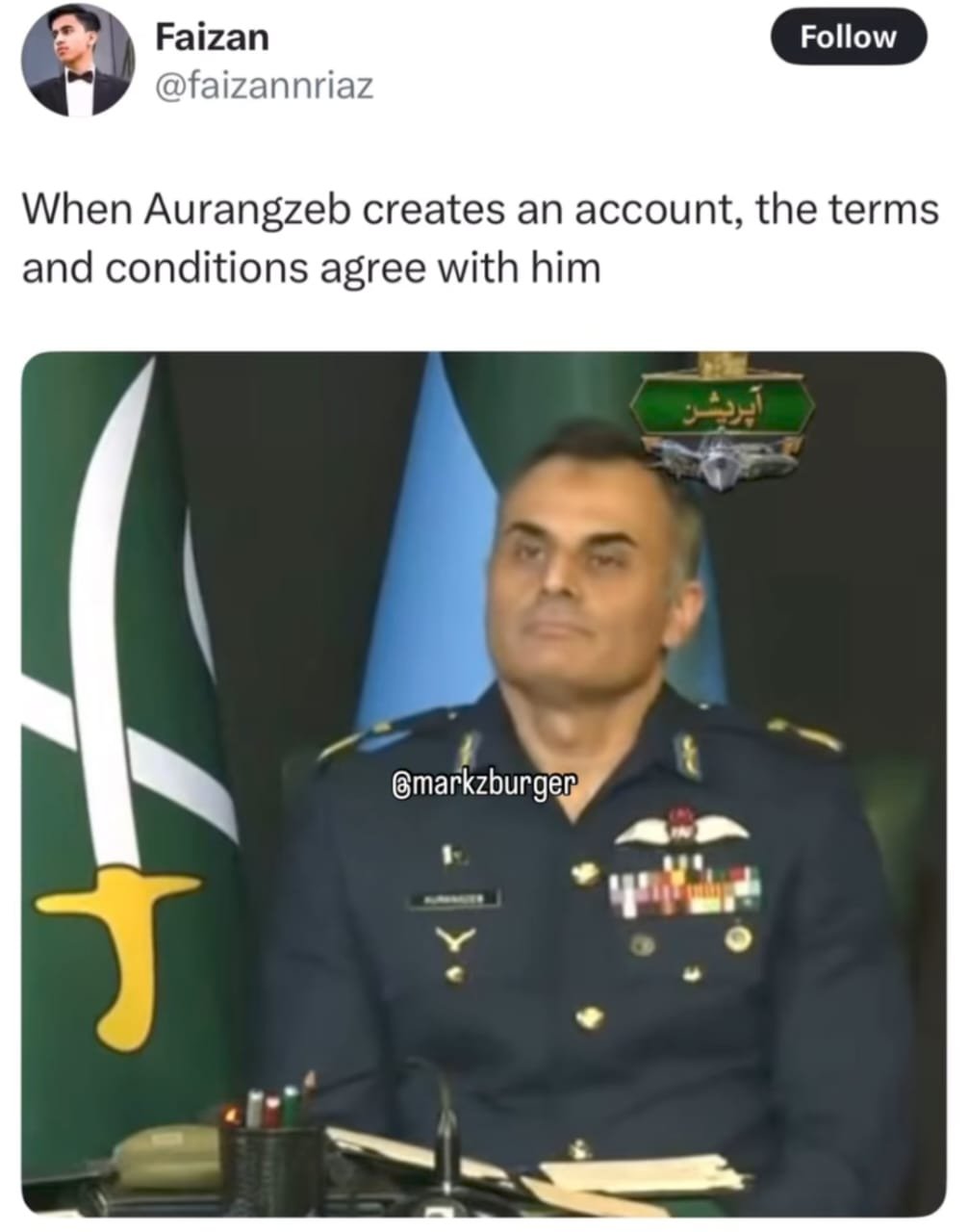
Source: Instagram (@markzburger)
Air Vice Marshal (AVM) Aurangzeb Ahmad became a favorite among the country for his calm and articulate demeanor during press briefings. As the DGPR for the PAF, he earned praise for his clear and easy-to-understand briefings about the on-ground situation during the conflict, and Pakistani citizens took to Instagram and X to create memes and edits about him. The meme community drew parallels to past military victories, such as “The tea is fantastic,” and continued to generate memes promising tea to other Indian pilots whose jets were owned by the Pakistan Air Force (PAF).
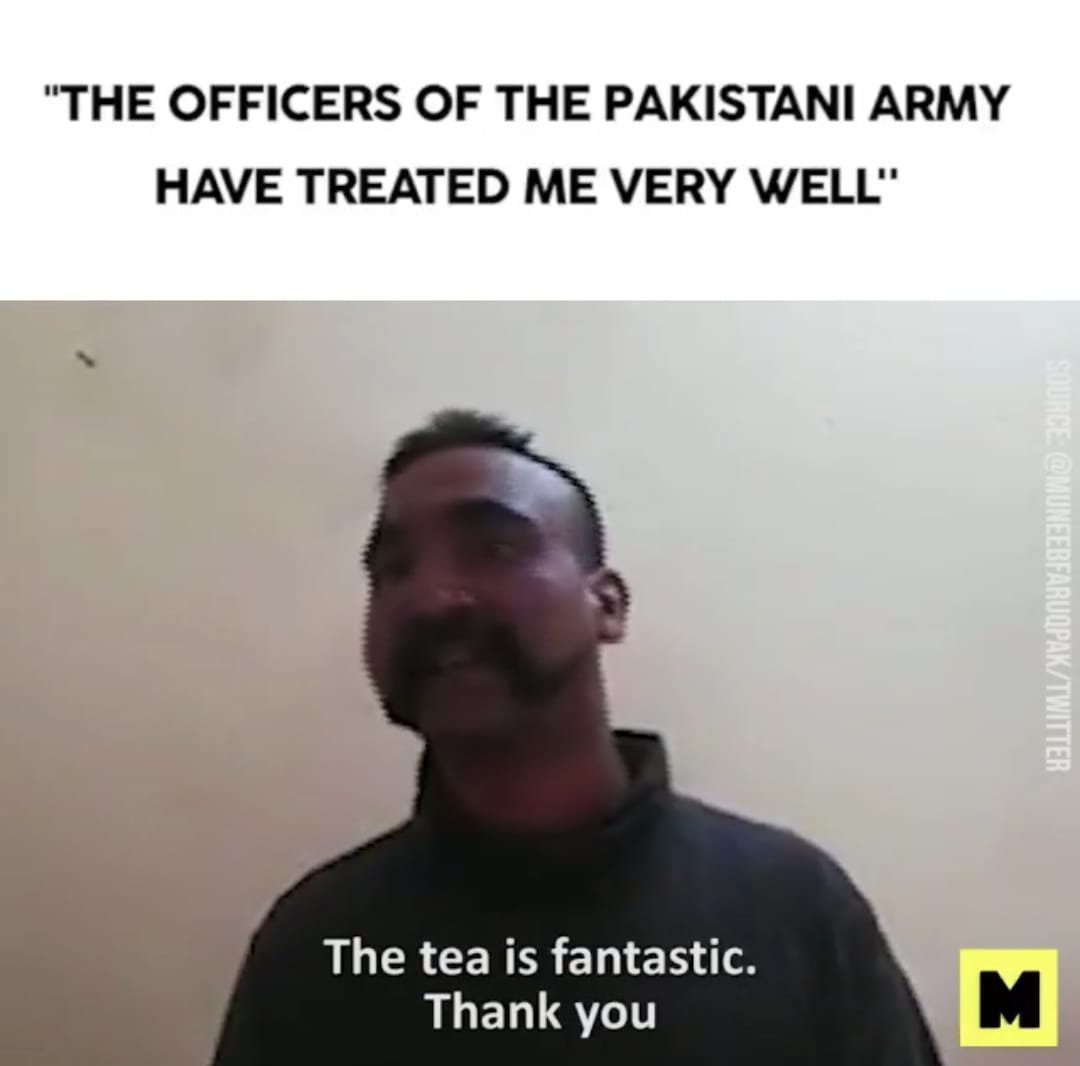
Source: Instagram (@mangobaz)
The three PR chiefs of the armed forces were even dubbed as ‘Powerpuff Girls’ by the ‘social media warriors’:
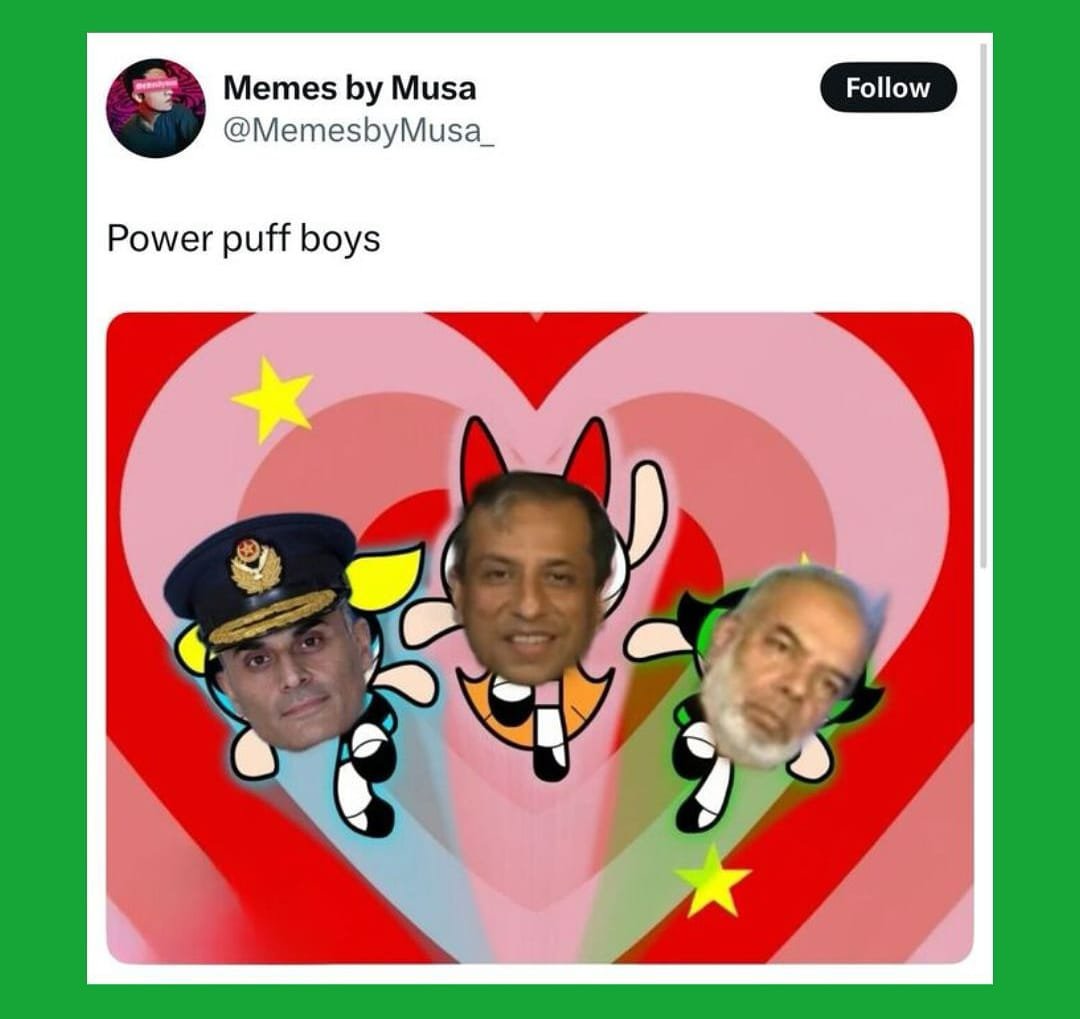
Source: Instagram (@MemesbyMusa_)
The effect was to instill national pride in a way that does not offend but fosters a sense of security and confidence in the military, bridging the gap between the state and its people. It also resonated with the younger audience through its reference to nostalgic cartoons and expanded their understanding of conflicts in a lighthearted way.
In a country often plagued by painful and grim headlines, memes serve as both comedic relief and psychological armor against distressing news. They provide a unique form of therapy that helps Pakistanis cope with daily hardships. The harsh reality of war is thus softened by light-hearted humor.

